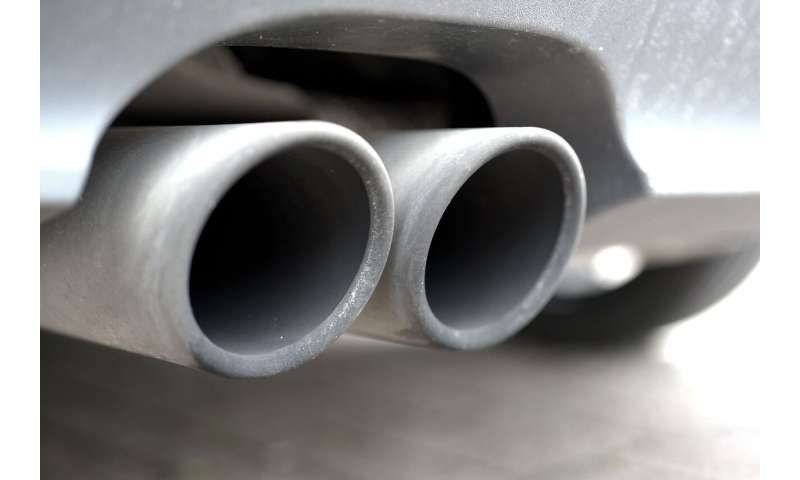[ad_1]

Credit: CC0 Public Domain
A team of researchers from Yale-NUS College, in collaboration with scientists in Sweden, discovered that bisulfate species in the exhaust stream are strongly connected to decrease the effectiveness of exhaust remediation catalysts in diesel engines. Their findings pave the way for synthesizing more sulfur-tolerant catalysts and developing regeneration strategies for catalytic systems in diesel-powered cargo vehicles. This could lead to less emission of highly toxic nitrogen oxides from diesel engines, thus reducing pollution.
Yale-NUS College postdoctoral fellows Susanna Liljegren Bergman and Vitaly Mesilov, Xiao Yang University Researcher (Class of 2021), and Professor of Science (Chemistry) Steven Bernasek, conducted this research. They worked with collaborators Sandra Dahlin and Professor Lars Pettersson in Sweden, and Dr. Xi Shibo at the Singapore Synchrotron Light Source at the National University of Singapore. They used in situ temperature dependent Cu K-edge X-ray absorption spectroscopy to analyze exactly how sulfur oxides affect catalysts of the copper exchanged chabazite (Cu-CHA) structure.
Catalysts composed of copper exchanged zeolites with a chabazite structure (Cu-CHA) are currently the most efficient means of reducing the emission of highly toxic nitrogen oxides from diesel engines. However, previous studies showed that the effectiveness of Cu-CHA catalysts is reduced by the sulfur oxides that are also present in the diesel exhaust, which poses a problem as the catalysts become less effective in preventing the nitrogen oxides escape into the atmosphere. In this study, the researchers found that the effectiveness of catalysts in diesel engines is more affected by the presence or formation of bisulfates in the exhaust stream. Understanding the chemical mechanism of how catalysts in diesel engines are affected by sulfur oxides present in diesel exhaust gases would allow the development of more effective catalysts that could reduce the emission of nitrogen oxides from diesel engines.
With a better understanding of how sulfates affect catalysts, further work can be done to investigate how negative effects can be mitigated. Furthermore, the findings regarding sulfates can also be applied to other studies on the impact of phosphorus and phosphorus oxides, present in biodiesel fuel, on catalyst performance. This could lead to the creation of more effective catalysts for biodiesel engines.
Professor Bernasek said: “The results of this fundamental research on catalyst deactivation mechanisms provide the basis for developing new catalysts and new catalyst regeneration protocols. More efficient and robust exhaust remediation catalysts benefit the environment by reducing the emission of nitrogen oxides and enable the use of more efficient engines, reducing overall carbon emissions. This helps reduce the impact of continued short-term use of fossil fuels and accelerate our transition to carbon neutral biofuels. ”
Zero emission diesel combustion using an unbalanced plasma assisted MnO2 filter
Susanna L. Bergman et al., In Situ Studies of Copper Oxidation / Reduction in Cu-CHA SCR Catalysts: Comparison of Fresh Products and SOtwopoisoned catalysts, Applied Catalysis B: Environmental (2020). DOI: 10.1016 / j.apcatb.2020.118722
Citation:
Scientists Find Bisulphates That Reduce the Efficiency of Diesel Engine Catalysts (2020, April 21)
Retrieved on April 21, 2020
from https://phys.org/news/2020-04-scientists-bisulphates-curb-efficacy-diesel.html
This document is subject to copyright. Apart from any fair treatment for the purpose of study or private investigation, no
part may be reproduced without written permission. The content is provided for informational purposes only.
[ad_2]